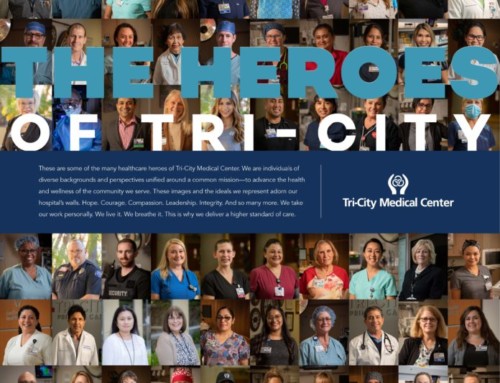 Getting assessed or starting treatment can be a source of stress, but it doesn’t have to be.
Getting assessed or starting treatment can be a source of stress, but it doesn’t have to be.
An assessment is ultimately used to determine how to best serve you – the patient. Everybody is different, and your needs may change depending on your situation.
At Tri-City Medical Center, we offer different levels of care designed to match these needs. By taking the time to assess which level would be most effective, we can ensure that you receive the most comfortable and appropriate treatment plan possible.
How to Prepare
Before your assessment at Tri-City Medical Center’s Outpatient program, you will have an evaluation by telephone. This will help us determine whether you need to visit the center or would find an outpatient doctor more appropriate for your needs.
When you do come in, please make sure you have all of your documentation to facilitate the process. This includes your insurance, identification, and a list of any medications you are taking. It might help to bring in notes about your personal and family medical history, previous health treatment, and any concerns you may have, so you remember to discuss them during your assessment.
If it’s helpful you can invite your significant other and/or anyone involved in your care to accompany you for practical and moral support if needed. The assessment may take one to two hours to complete, so make sure to set aside a good amount of time in your day to relax and take your time.
During the Assessment
The point of an assessment is to find out whether you can benefit from treatment and what level of care or program would be beneficial to you. Tri-City Medical Center has three levels of treatment for individuals experiencing mental health issues: intensive outpatient treatment, the crisis stabilization unit, and the behavioral health unit. With your input, the staff will make a recommendation as to what level of care would be helpful.
During your assessment, our friendly staff will ask you about topics such as your mental health history, any substance use, and how you feel currently. Often, they will ask you to fill out one or more questionnaires to screen for things like depression or anxiety. Your responses will be scored to see if your risk of depression, anxiety or psychosis is low, mild, moderate, or severe.
You may also be asked to answer questions or fill out a questionnaire about your drug and alcohol use. This will help determine whether your use is typical, or whether it is risky and needs to be addressed.
What Happens Next?
Your treatment will be decided depending on your assessment. If your symptoms are severe with a risk to yourself, the crisis stabilization or behavioral health unit may be recommended.
If there is not an immediate risk, and you can benefit from intensive outpatient treatment we would schedule an admission to the outpatient program within a day or two. The treatment is comprehensive and will include a combination of medications, group therapy and individual therapy. The intensive outpatient program is usually three days per week for three to four hours. You will be seen by a psychiatrist to evaluate the need for medications. On the average day you will attend three group therapy sessions. You will also receive periodic individual sessions to support your recovery.
The Intensive Outpatient program consists of many different programs that are designed to address your individualized needs. We have a Dialectical Behavior Therapy, dual recovery (addresses mental health and substance use), and an older adult program for individuals over 55. We provide many groups, such as group therapy, anxiety management, cognitive behavior therapy for mood symptoms, cognitive behavior therapy for psychosis, Wellness Recovery Action Plan, spirituality, art therapy, etc.
Regardless of whether outpatient or inpatient services are better for you, your treatment will involve a team of well-trained professionals and will take place in a safe environment that welcomes you, your family, and your friends. The intensive outpatient program staff consist of highly trained and experienced individuals, including psychiatrists, psychologists, licensed clinical social workers, licensed marriage family therapists, licensed professional clinical counselors, art therapists, and nurses.
Outpatient Behavioral Health Services is committed to providing mental health treatment in a safe and supportive atmosphere, empowering individuals to achieve recovery and improve quality of life. We work to continuously improve the quality of services to meet the needs and expectations of our patients. Our aim is to partner with each individual in achieving their personal recovery goals and developing a life full of hope, meaning and purpose.
Contact Tri-City Medical today and speak to our expert team for more information about our pre-treatment assessment. Intensive Outpatient intake phone number is 760.940.5051.





